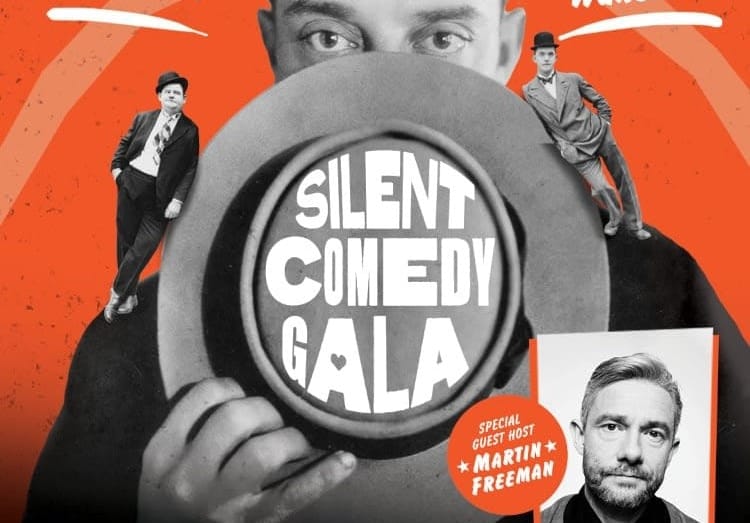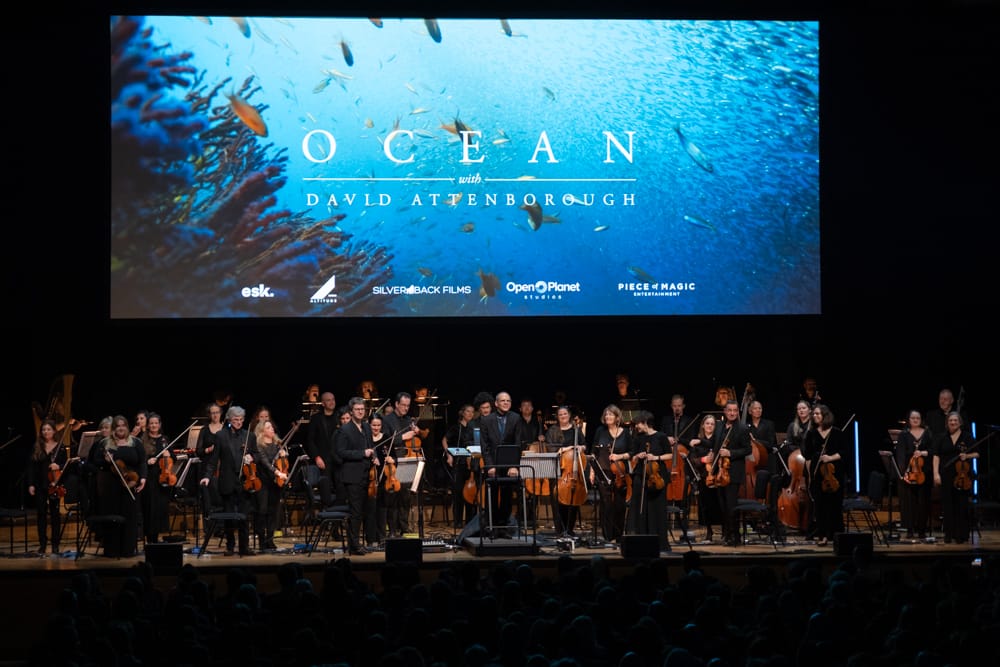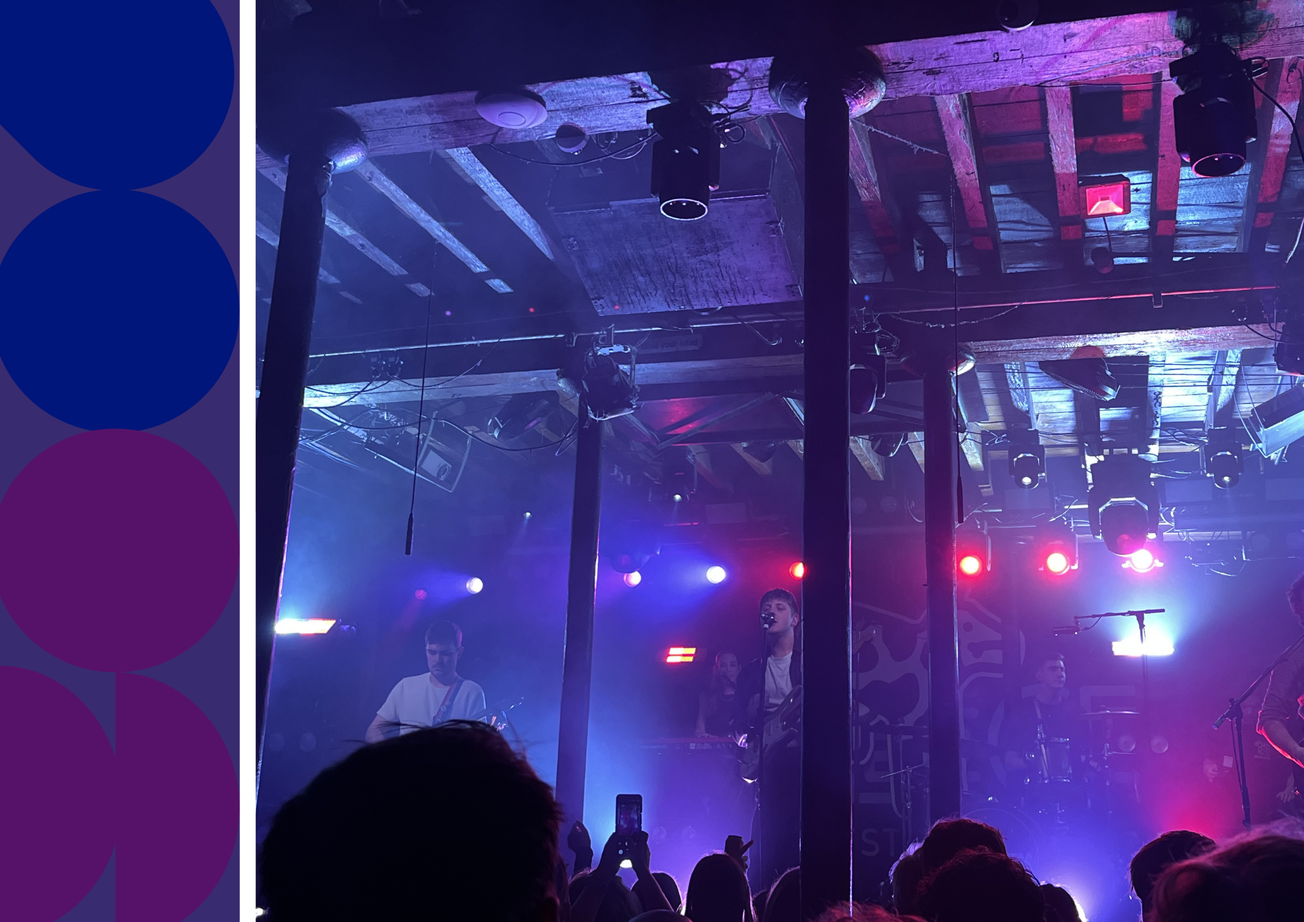By Lima Assi, MSc Environmental Policy and Management
Prior to this Slapstick Film Festival event, the extent of my silent film experience was when the sound wasn't working for half of a three-hour long movie club. Completely ignorant to what the silent comedy genre entailed, I went into the Silent Comedy Gala event with no expectations whatsoever; truthfully, only there because I had no other Valentine’s Day plans.
But from the moment the lights dimmed in Beacon Hall, and a perfectly charming Martin Freeman took to the stage to commend the 20 years of work put into organising Bristol’s annual Slapstick Festival - I was sold. We began with The Immigrant (1917), starring, written, directed, and largely composed all by Charlie Chaplin himself. The film followed Chaplin’s mishaps on the voyage to New York, such as being accused of pickpocketing a penniless woman and her mother when he was simply attempting to give her a generous donation without subjecting her to pity. Having survived the ship-ride over to America by the skin of his teeth, city life presents itself a problem for our poor Charlie. Yet, despite New York’s best efforts to dash the immigrant’s hopes and dreams, he persists! The film is a delightful medley of romance, comedy, and social commentary, portraying the experience of the hopeful immigrant on screen when the US’ 1917 Immigration Act had just been passed, which restricted the entry of ‘undesirables’ into Ellis Island.

The Immigrant was accompanied by a live soundtrack performed by the European Silent Screen Virtuosi, conducted by Günter A. Buchwald, and the Bristol Ensemble. The phenomenal 9-piece live accompaniment not only demonstrated how crucial music is to build up tension and excitement in the absence of words, but it also showed how important audio cues are to slapstick performers such as Chaplin who rely solely on sound to convey a bump, slip, and a THWACK! Acknowledging this, Martin Freeman introduced to the stage acclaimed keyboardist, Rick Wakeman. With Wakeman’s expressive and dynamic playing, there was no better person to accompany Laurel and Hardy’s Angora Love (1929), the second and silliest film of the evening.
Angora Love was my personal favourite of the three films to play, for the plot’s sheer absurdity. A goat insists on following the iconic Laurel and Hardy duo home, and they reluctantly agree to care for it despite fearing the wrath of their landlord. They experience many close shaves in being outed in concealing the goat, however, an unfortunate blunder occurs when attempting to bathe the goat that leads to its exposure. The onscreen personas of the goofy, air-headed Stan (Laurel) and the constantly exasperated Ollie (Hardy) are magnetic; they fit together on stage so naturally, as they both push and pull, give and take. It’s not hard to see how these icons have inspired future generations of physical comedy duos, such as the Chuckle Brothers, or Dick and Dom.

After the second feature, the night paused for a 20-minute intermission, during which we were grateful to interview many of the attendees, all of whom were very excited to see the grand finale: Buster Keaton’s Steamboat Bill Jr. (1928). Most people spoke to us about how they had grown up watching silent comedy films, and that they had been coming to Bristol’s Slapstick Festival for a long time. They were grateful that they had found a small niche in which they could share their love and the nostalgia of silent films. As one guest described it, silent films were their antidote to modern film: a 3-hour blockbuster couldn’t compare to the feel of a very real, very grainy silent film.
Prior to the final showcase, we were graced with a wonderful performance from the A cappella group ‘The Matinee Idles’. Then, Steamboat Bill Jr. began. The film tells the story of Keaton’s character reuniting with his estranged father, Steamboat Bill, who is displeased that his son isn’t a hardy lad but rather a runt of a boy. Junior’s urban experience makes him ill-equipped to deal with the family steamboat business, which is facing trouble with another competitor in the mix. As luck would have it in typical star-crossed lover’s fashion, Junior ends up falling for the rival’s daughter. However, when a cyclone hits, Junior gets the opportunity to prove himself and demonstrate his quick-thinking. The storm sequence is squarely embedded in film history’s hall of fame, especially the legendary scene where Buster Keaton performs the perilous gag where a real, two-ton house front falls on top of him. Defying death, Keaton is standing exactly on the mark where the open window allows him to remain standing, unharmed. I was amazed at the extreme nature of the stunts that Keaton performed in this film’s 70-minute run, at the lengths that he would go to in order to achieve the physical gag. A guest stated that Keaton is an example of where ‘the actor meets the athlete’.'

After the event ended, my date and I were lucky enough to grill David Sproxton CBE, co-founder of Aardman Animations, the studio that brought us Wallace & Gromit and Shaun the Sheep. The genealogy of their work can be traced back to the likes of Buster Keaton, inspired by the sheer ridiculousness of the physical comedy- a physicality that crosses boundaries, language, and time. Sproxton talked about the value in being able to create crazy worlds: in a world that is so serious these days, who’s creating the fun? On the timeless nature of slapstick, Sproxton told us a story of his editor at Aardman studios, Dave McCormick, who would be required to edit the same moment hundreds of times- but laugh at the gag, every single time. A century has (almost) passed for the films screened here in Beacon Hall; yet the audience laughed just as hard and loved the films equally as much as when they were initially released. That is what it means for art to be immortalised.
I am very grateful for the Slapstick Festival and Bristol Beacon for allowing Epigram to attend and cover the Silent Comedy Gala. It was an immersive experience where the music, the venue, the community, the films all came together to create a brilliant environment with a deep appreciation for silent comedy. Bristol’s Slapstick Festival is a wondrous ode to a genre and its artists who have devoted themselves so wholly to their craft; a kind of devotion that is irreproducible in this current generation.
Be sure to catch @slapstickfest when it comes around next year!







